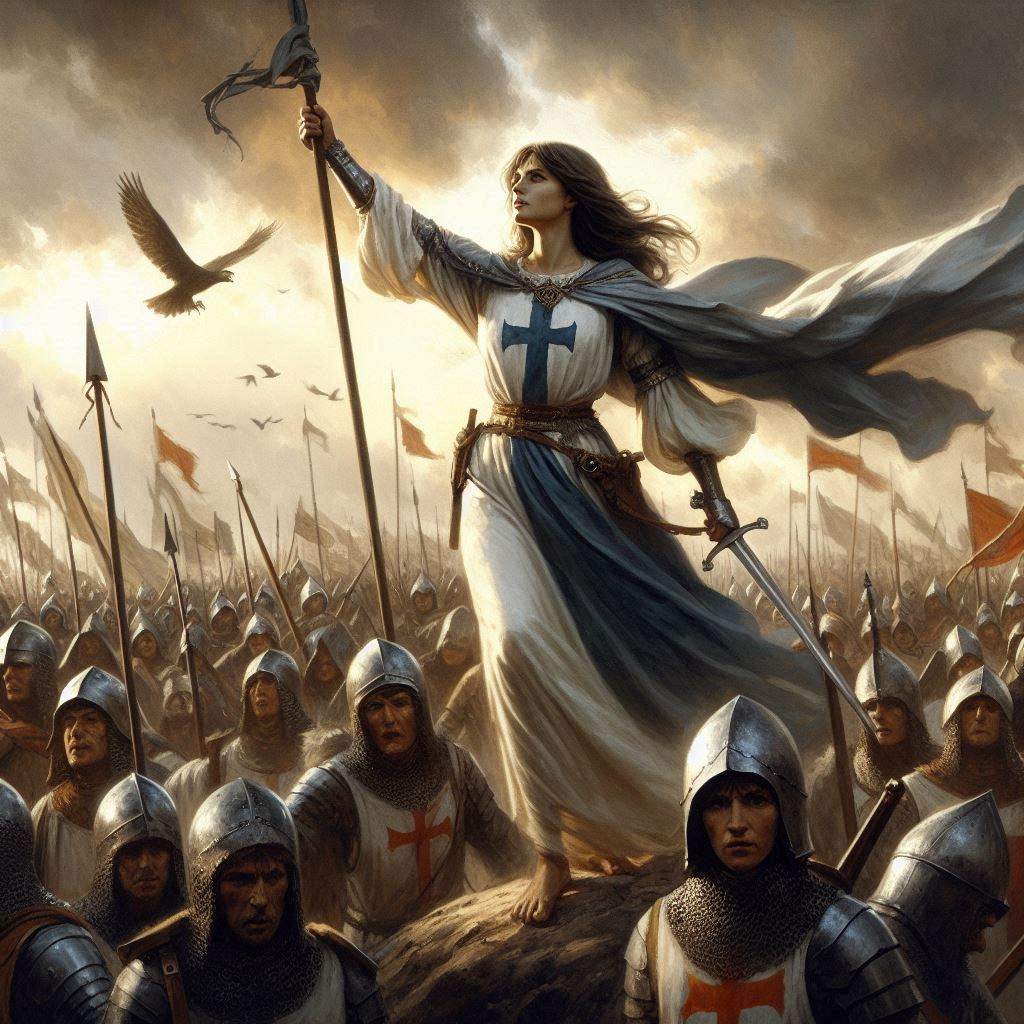I recently started watching a 5-part documentary series called Warrior Women on Amazon Prime. It is narrated by Lucy Lawless (who played Xena: Warrior Princess on the show of the same name). Her first story was about Joan of Arc. I've always been fascinated by this young woman, who somehow managed to lead armies into battle only to end up burned at the stake.AI Image
***
Imagine a city teetering on the edge of defeat, surrounded by enemies, its people losing hope. Enter Joan of Arc—a teenage peasant with an unshakable belief in her divine mission, clad in armor, leading an army into battle with unwavering conviction. What happened on May 7, 1429, was nothing less than extraordinary.
The Siege of Orléans: A Leader Like No Other
By the time Joan arrived at Orléans, the English siege had lasted over seven months. The city was starving, morale was crumbling, and surrender seemed inevitable. But Joan—just 17 years old, fiercely determined, and radiating an almost supernatural charisma—believed she was sent by God to drive the English out of France.
Though many doubted her, she refused to be dismissed. She convinced Charles VII, the hesitant French king, to let her lead an army—a decision that would change everything. This was not just about military strategy. This was about hope.
The Storming of Les Tourelles: Joan’s Defining Moment
On May 7, 1429, Joan led a daring assault on the English stronghold of Les Tourelles, a fortress guarding the entrance to Orléans. With her banner held high, she rallied troops like no other leader could. Her presence on the battlefield was electrifying, not just because she fought, but because she inspired.
As the battle raged, Joan was struck by an arrow, falling to the ground. Anyone else might have retreated, but Joan was not anyone else. She insisted on returning to the fight, despite the injury, charging forward with renewed determination. Her soldiers—previously disheartened—matched her energy, overwhelming the English forces.
By nightfall, the French claimed victory. The next day, the English abandoned their siege. Joan had not only won a battle—she had transformed the war.
Why This Day Mattered
Joan’s triumph at Orléans was not just a military success—it was a psychological victory for France. The tide of the Hundred Years’ War began to shift. Over the next few months, Joan continued to lead armies, paving the way for Charles VII’s coronation.
But her rise was meteoric—and dangerous. Her unwavering faith and unorthodox leadership made her both revered and feared. In 1431, she was captured and burned at the stake as a heretic. Yet even in death, she remained resolute, refusing to renounce her visions.
Centuries later, she was canonized as a saint.
Joan of Arc was not just a warrior—she was a visionary, a leader, and a woman who defied every expectation. Her sheer conviction, courage, and refusal to accept defeat made May 7, 1429, a day that changed history.
-30-


No comments:
Post a Comment
Thank you for dropping by! I appreciate comments and love to hear from others. I appreciate your time and responses.